The Next Food Spike?


BY ZeroHedge - TYLER DURDEN - TUESDAY, FEB 07, 2023
By Russell Clark of the Capital Flows and Asset Markets substack,
In food terms, Brazil is a superpower.
If we look at food in terms of million hectares devoted to cultivation, we can see that Brazil is the largest for oilseeds (soybeans) and 5th largest for coarse grains (corn, sorghum, barley, and oats). Coarse grains and oilseeds are vital crops for animal feeds, of which Brazil is a leading exporter. Rice is large grain, but relative to production is far less traded than the other grains.

In value terms, Brazil is 4th largest producer.
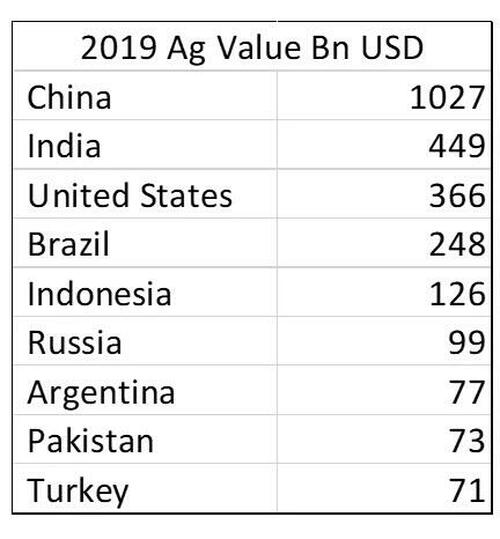
It is likely that the above data understates Brazil's agricultural prowess. Recent data shows that the area planted for grains has increased significantly in recent years.
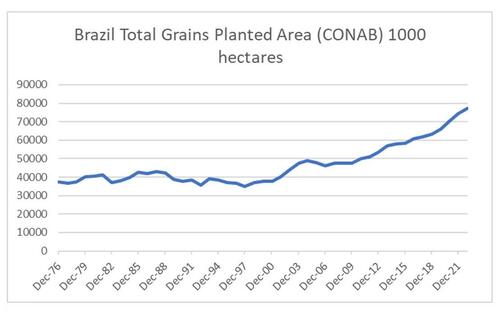
And we have soybean production continue to grow.
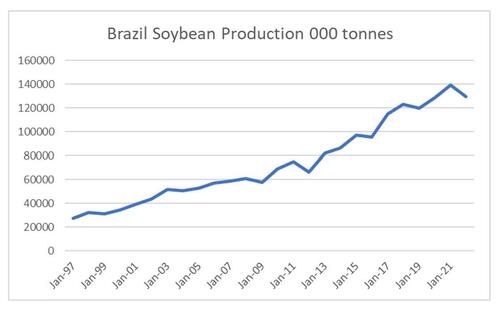
And corn exports have risen dramatically too.
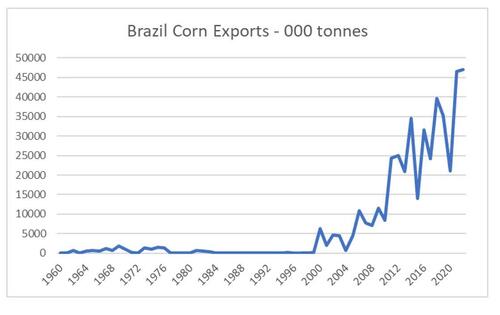
Given this highly developed agricultural industry is it striking that at his recent inauguration as President of Brazil, Lulu wept at how many of his fellow citizens were going hungry? When Lula was previously president food insecurity was greatly reduced through a variety of programs, and a booming economy. However, a combination of the end of the commodity cycle, as well as mismanagement has seen the number of Brazilians enjoying food security fall from 77% in 2013 to 41.3% today.
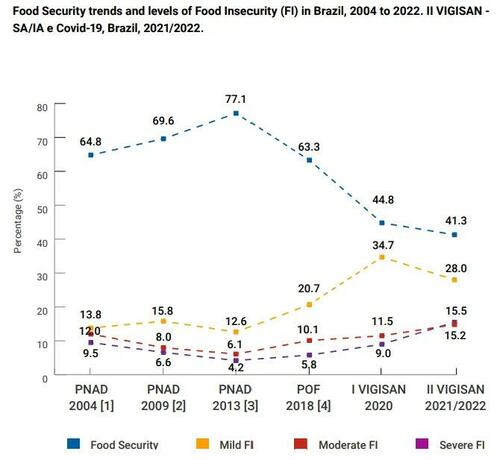
That is even though Brazilian farmers have consistently grown output, prices for agricultural good has risen. Brazil has tended to have constant food inflation, but recently the pace has been substantial. Typically it has taken 10 years for food inflation in Sao Paolo to double, but recently it has happened in only 5 years. The conclusion then is that food prices in Brazil have probably risen much faster than wages leading to food insecurity.
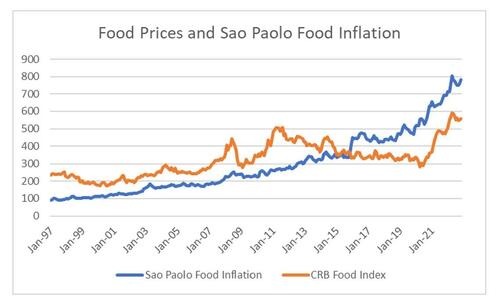
So Brazil is exporting more food than ever before, but Brazilians are the hungriest they have been in 20 years. How did this happen? The big shift is that China is now a large corn importer. Even with lower imports in 2022, China was still one of the largest importers in the world.
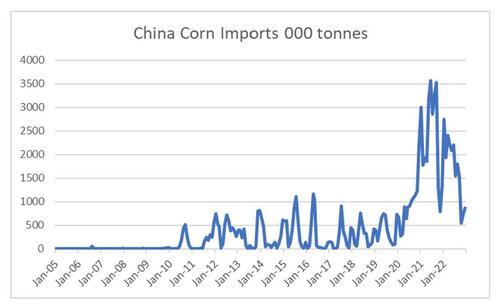
And here is the problem, food prices are generally higher in China. Why? Lots of reasons - a policy of trying to be self-sufficient means that tariffs have risen on imports, lack of labor, lack of land, and rising wages all contribute to China having an upward bias on food prices.
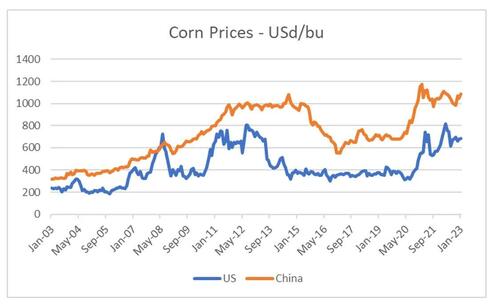
Corn prices also directly affect pork prices, and Chinese pork prices have been above US prices for many years now. Higher Chinese pork prices predate any cold war rhetoric or tariff increases, making me think that high food prices in China are structural, not cyclical.
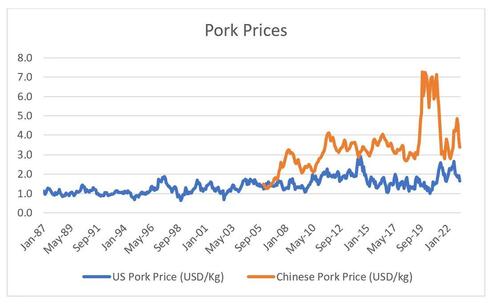
Politically, it is very difficult for governments to sit idly by as farmers export records amounts of grain at record prices as hunger stalks its poor. Policy options for Brazil include export taxes, export bans, or a range of other policies.
Unless food prices collapse in China soon, I expect the Brazilian food supply to be curtailed, and a food spike in the rest of the world to ensue. This should lead inflation to surprise to the upside again.

